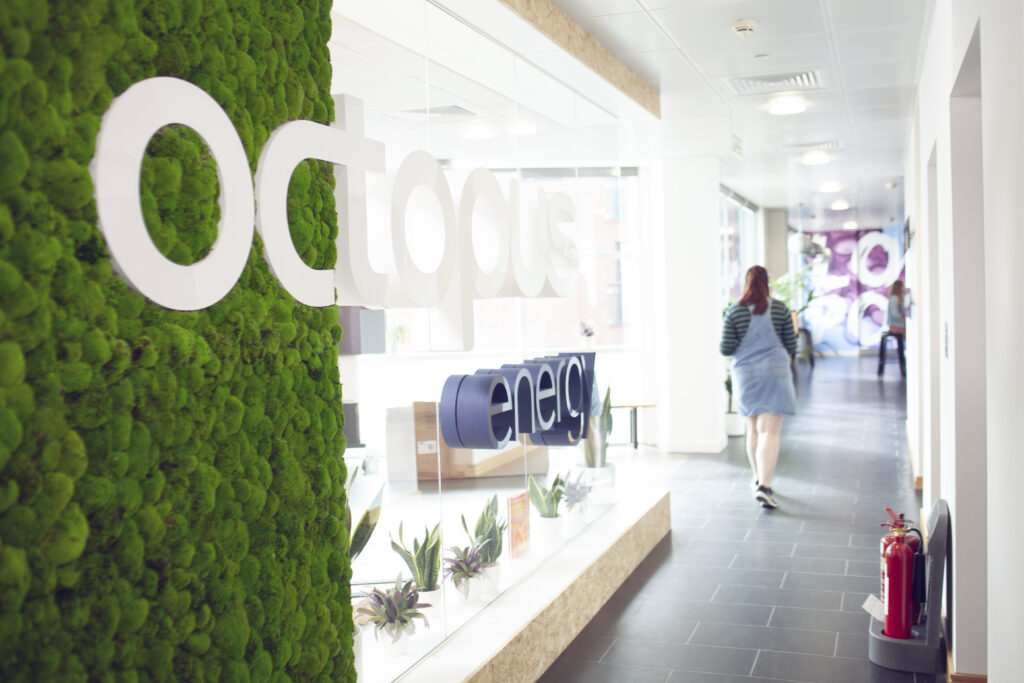Octopus Energy is to take on Bulb’s 1.5 million customers, as it wins out in buying the failed supplier.
Bulb entered special administration in November 2021, after failing to find new funding opportunities and announcing insolvency amid high power prices. Consultancy Teneo was appointed as administrator by the government, and has since been running the company while a new owner was found.
Clean energy supplier Octopus Energy has won out in this process, and is acquiring the customer base at a rate it believes represents a higher amount per customer than suppliers have typically paid to take on any of the other 29 suppliers that have collapsed since September 2021.
According to reports today, such as those in the Telegraph, the support of Bulb over the last year along with this deal could cost households £4 billion. This makes it the most expensive bailout since that of RBS in 2008.
The sale will be managed through an Energy Transfer Scheme (ETS), whereby the relevant assets of Bulb will be placed into a new, separate entity – dubbed Bulb UK Operations Limited – to protect consumers. This will then be sold to Octopus, and will remain ringfenced from the company’s core business for a defined period.
Bulb is currently unhedged, so the government will provide financial support to the new entity for the purchase of energy for its customers over the course of the coming winter. This will then be repaid by the new entity in accordance with an agreed repayment scheme.
The ringfenced business will have a profit-share agreement in place until the agreed funding is repaid by Octopus. Payments to shareholders or the wider Octopus Energy Group from the ringfenced entity will be restricted until this funding is repaid.
This process is subject to approval by the business and energy secretary, and will take effect at a time ordered by the High Court. This is likely to be 11 November 2022, for the transfer to become effective likely on 23:59 15 November 2022.
“This government’s overriding priority is to protect consumers and today’s sale will bring vital reassurance and energy security to consumers across the country at a time when they need it most,” said newly appointed business and energy secretary Grant Shapps.
“This is a fresh start and means Bulb’s 1.5 million customers can rest easy, knowing they have a new energy home in Octopus. Moving forward, I intend to do everything in my power to ensure our energy system provides secure and affordable energy for all.”
During the transition period, Octopus will continue to use Bulb’s technology and brand to ease the process for Bulb customers.
Their credit balances and existing direct debits will be automatically transferred to a new account with Octopus. Their new supplier will be in touch before they are transferred to Octopus’s systems, which are powered by Kraken.
Additionally, Bulb’s 650 staff members will be automatically transferred over during the process.
“We take our responsibilities very seriously. We will work unbelievably hard to deliver value for taxpayers and to look after Bulb’s staff and customers,” said Greg Jackson, CEO and founder of Octopus Energy Group.
“We started off as rivals but shared the same mission – driving a greener, cheaper energy system with people at the heart. We know how important this is to Bulb’s loyal customers and dedicated staff, and are determined that Octopus can provide them with a stable home for the future.”
Octopus currently has 3.4 million domestic energy customers, under the brands Octopus Energy, M&S Energy, Affect Energy, Ebico, London Power and Co-op Energy. It will now become the third biggest supplier in Britain following taking on Bulb’s customers.
It already has experience onboarding a significant number of customers, having taken on over 580,000 customers from Avro Energy through the Supplier of Last Resort process.
Power prices have been particularly high and volatile over the last year as a result of dynamics following the COVID-19 lockdowns, cold weather last winter and the Russian invasion of Ukraine and subsequent weaponisation of energy.
This led to a significant number of supplier collapses over the last winter in particular, as they were caught between surging wholesale prices and the price cap. Since then, systems have been changed to ease the pressure, with the Energy Price Guarantee seeing unit price caps in place for customers, while the government will meet the additional cost of power to support suppliers, for example.
However, with cold weather on the way there is still concern around the impact volatile prices will have on the sector. For example, So Energy announced it is looking to raise £50 million last week, to shore up its operations.
Bulb was poorly hedged, leaving it extremely exposed to growing prices over the latter part of 2021, in particular given the size of its customer base. In September 2021, the supplier confirmed that it was looking for new funding opportunities, but failed to find them and officially entered Special Administration in November.
At the time, the government noted that it had put aside £1.7 billion to support the failed supplier.
However this cost has subsequently risen, and the cost will now include funding support throughout the winter – hence the £4 billion price tag quoted above. In the six months since nationalisation, Bulb lost £886 million, noted an article in the Financial Times in July.
After UAE government-owned energy company Masdar and British Gas owner Centrica both dropped out of the race to buy Bulb, Octopus Energy was thought to be the last company in the running until an eleventh-hour bid from OVO Energy was reported last week.





